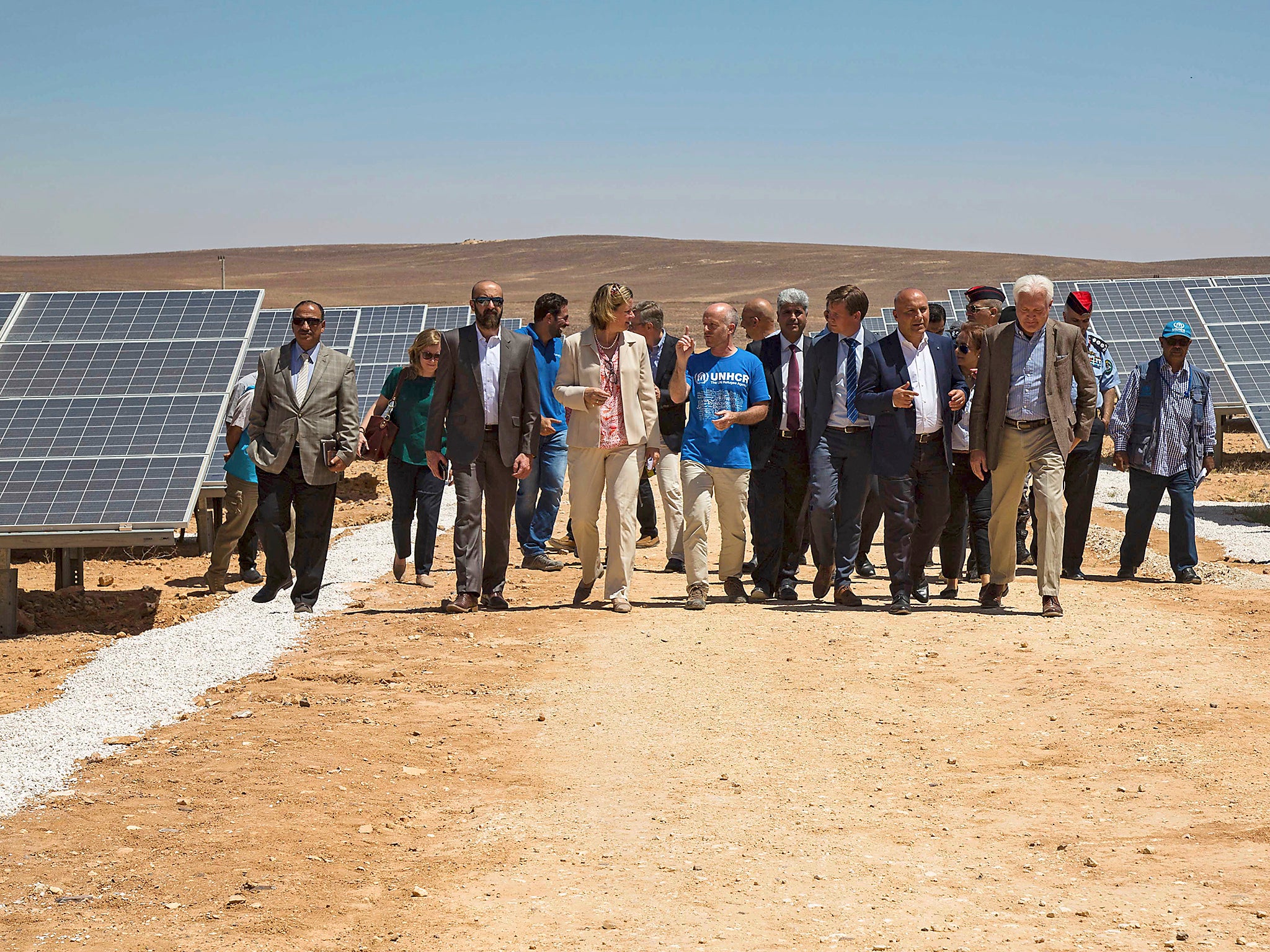Jordan’s Azraq refugee camp becomes first to run entirely on solar energy
UNHCR hails development as 'a milestone' for 36,000 Syrians living in desert camp

Your support helps us to tell the story
From reproductive rights to climate change to Big Tech, The Independent is on the ground when the story is developing. Whether it's investigating the financials of Elon Musk's pro-Trump PAC or producing our latest documentary, 'The A Word', which shines a light on the American women fighting for reproductive rights, we know how important it is to parse out the facts from the messaging.
At such a critical moment in US history, we need reporters on the ground. Your donation allows us to keep sending journalists to speak to both sides of the story.
The Independent is trusted by Americans across the entire political spectrum. And unlike many other quality news outlets, we choose not to lock Americans out of our reporting and analysis with paywalls. We believe quality journalism should be available to everyone, paid for by those who can afford it.
Your support makes all the difference.A refugee camp in Jordan has become the first in the world to be powered by renewable energy.
About 20,000 Syrian refugees living in the desert camp of Azraq will be able to use electricity generated by a solar plant.
The new $9.6m (£7.49m) two-megawatt solar plant was built by the Ikea Foundation’s Brighter Lives for Refugees campaign and is expected to save $1.5m (£1.15m) a year, which the United Nations High Commissioner for Refugees will be able to use to improve sanitation, shelters and organise activities around the camp.
“Today marks a milestone,” said Kelly T Clements, UNHCR Deputy High Commissioner.
“Lighting up the camp is not only a symbolic achievement; it provides a safer environment for all camp residents, opens up livelihoods opportunities, and gives children the chance to study after dark. Above all, it allows all residents of the camps to lead more dignified lives," he said.
Mr Clements praised the plant as “a remarkable example of cooperation” between the government of Jordan, private solar company Mustakbal and UNHCR.
The clean energy is due to be expanded to the 36,000 refugees living in the camp in Jordan’s barren northern desert by early next year.
For the past two and a half years, refugees living in Azraq were reliant on portable solar lanterns to light their homes and had no means of preserving food or cooling their shelters in the extreme desert heat.
Electricity was first introduced in January and changed the way of life in the camp.
Fatima, a 52-year-old single mother from rural Damascus, who has lived in the camp since 2015 with her two adult sons, said electricity in the camp had enabled her family to preserve leftover food, have a cold glass of water and continue daily activities after sunset.
“In Syria we were used to a particular lifestyle, and then we were disconnected from it when we became refugees. For someone who is used to having electricity, you cannot imagine how difficult it is to live without it,” she said.
More than 50 refugees from the camp also benefited from training and were employed under the supervision of Jordanian solar company Mustakbal to help build the plant.
Mohammad, 20, from the Damascus suburb of Ghouta, was one of those who worked to build the frames that support the solar panels and installed the plant’s electrical circuits.
Now he hopes his new skills will enable him to help rebuild Syria after the war.
He said: “I wasn’t able to finish my education because of the war and then exile, but this has given me a practical skill that I can hopefully use in the future.
“If we return to Syria, the infrastructure is all destroyed, but this is a technology that we could use to rebuild.”
Azraq’s solar plant is connected to Jordan’s national grid and the surplus electricity will be sent back for local communities to use for free.
Join our commenting forum
Join thought-provoking conversations, follow other Independent readers and see their replies
Comments